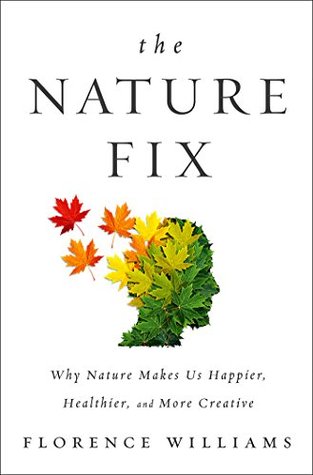More on this book
Community
Kindle Notes & Highlights
Read between
May 23 - May 25, 2019
May your trails be crooked, winding, lonesome, dangerous, leading to the most amazing view. —EDWARD ABBEY
people are happiest when they are well enmeshed in community and friendships, have their basic survival needs met, and keep their minds stimulated and engaged, often in the service of some sort of cause larger than themselves.
We don’t experience natural environments enough to realize how restored they can make us feel, nor are we aware that studies also show they make us healthier, more creative, more empathetic and more apt to engage with the world and with each other. Nature, it turns out, is good for civilization.
Our nervous systems are built to resonate with set points derived from the natural world. Science is now bearing out what the Romantics knew to be true.
“biophilia”; that honor goes to social psychologist Erich Fromm, who described it in 1973 as “the passionate love of life and of all that is alive; it is the wish to further growth, whether in a person, a plant, an idea or a social group.”
The biophilia hypothesis posits that peaceful or nurturing elements of nature helped us regain equanimity, cognitive clarity, empathy and hope.
“If you have time for vacation, don’t go to a city. Go to a natural area. Try to go one weekend a month. Visit a park at least once a week. Gardening is good. On urban walks, try to walk under trees, not across fields. Go to a quiet place. Near water is also good.”
“I’ll cite the X-Files. I want to believe.”
Perhaps what matters is not the source of the stress but the ability to recover from it.
Studies show that when people walk in nature, they obsess over negative thoughts much less than when they walk in a city.
Frederick Law Olmsted wrote of exactly this phenomenon in 1865, arguing that viewing nature “employs the mind without fatigue and yet exercises it; tranquilizes it and yet enlivens it; and thus, through the influence of the mind over the body, gives the effect of refreshing rest and reinvigoration to the whole system.”
Woody Allen: “I love nature, I just don’t want to get any of it on me.”
Sunlight stimulates the release of dopamine from the retina, which in turn appears to prevent the eyeball from growing too oblong. Indoor and outdoor light are totally different beasts. Even on overcast days, outdoor light is ten times brighter and covers vastly more of the light spectrum. Educators are scrambling to come up with solutions, including installing full-spectrum indoor lights and glass ceilings over classrooms. There’s a better solution: go outside.


